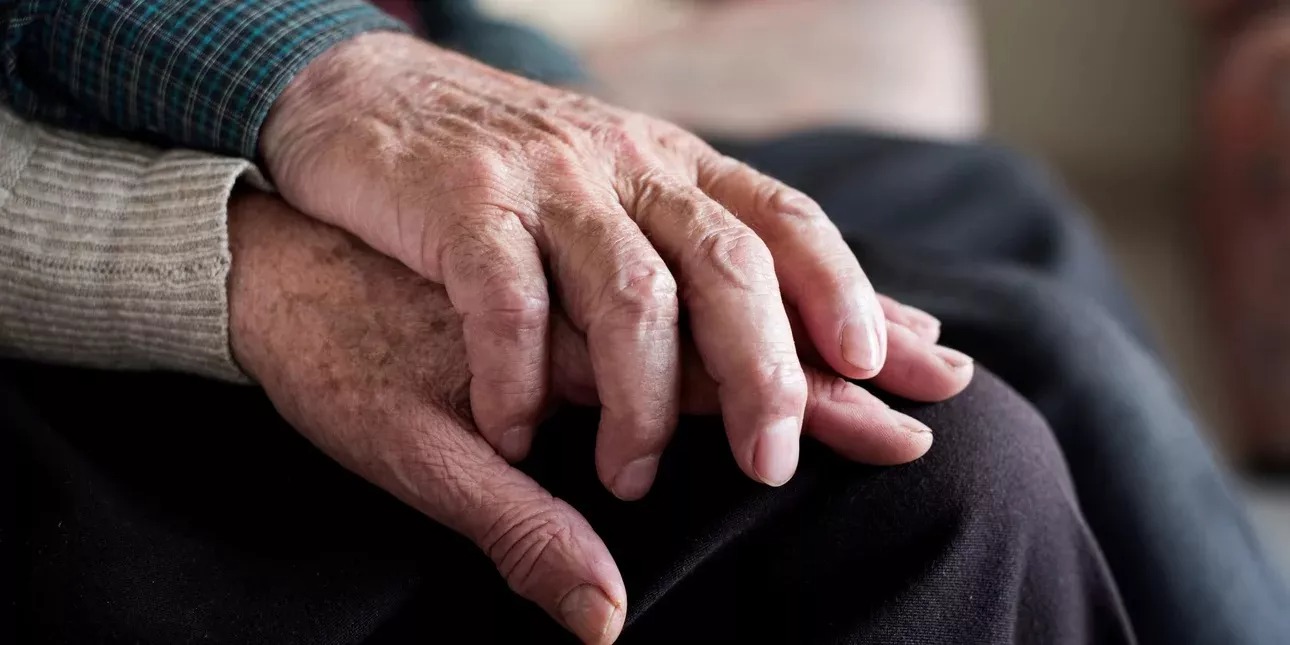47% of individuals over 60 years old in Cyprus describe their health status as “fairly good”. However, one in five states it is “not so good”.
Health issues rank as the third biggest concern for individuals aged 60 and over, with satisfaction from the healthcare they receive being rated as “fairly satisfactory” or “very satisfactory” by 85%.
These findings emerged from a large-scale survey conducted in Cyprus, following a decision by the Council of Ministers, focusing on the social and psychological needs and experiences of individuals aged 60 and over.
The research was led by Professor Konstantinos Fellas, who, analysing the results, explained to Phileleftheros that “from the survey, concerning the health sector, we see two to three specific points that require further analysis. For instance, we see that 69% of individuals over 60 reported that when they needed hospitalisation, they were admitted to a public hospital. This is a phenomenon we often hear about lately, despite the implementation of the General Health System.”
Regarding the overall question of the survey, concerning the challenges faced by the elderly in Cyprus, health issues were ranked third at 16% for men and 17% for women (loneliness experienced by individuals over 60 and economic situation ranked first and second).
Health issues seem to concern the oldest age group more intensively. According to data analysis, 27% of people reporting health issues were over 80 years old, 19% were in the age group of 70-79 years, and 5% belonged to the age group of 60-69 years.
Health problems, combined with financial constraints, cause fear and a sense of insecurity in 10% of individuals aged 60-69 years, 19% of those aged 70-79 years, and 13% of those aged 80 and over.
Health-related issues are also included in the recommendations of individuals over 60 who participated in this nationwide survey.
6% of participants mentioned the need for psychological support, and 3% suggested improvement in healthcare with simultaneous reinforcement of home care services.
Participants in the research were asked to describe their health status over the past year. The majority of participants (47%) characterised it as “fairly good”. 21% responded “very good”. However, one in five (20%) described it as “not so good”, while a percentage of around 2% answered “not good at all”. 10% did not provide an answer.
From the data analysis, the following emerges:
- 55% of women and 42% of men described their health status as “fairly good”.
- “Not so good” was the characterization for 21% of men and 21% of women.
- 5% of men and 2% of women described their health status as “not good at all”.
- 32% of men and 17% of women responded with “very good”.
Regarding the age distribution of participants who responded to this specific question, as indicated by the survey data, the “fairly good” characterization was given by 52% of individuals aged 60-69 years, 53% of those aged 70-79 years, and 47% of individuals aged 80 and over.
“Not good at all” was reported by 1% of individuals aged 60-69 years, 3% of those aged 70-79 years, and 7% of those aged 80 and over. Another 7% of participants in the older age group (80+) gave the “very good” characterization.
91% of participants responded that they are enrolled in the General Health System (GHS) and are served by its healthcare providers. 9% stated that they visit healthcare providers outside the GHS and pay out of pocket.
The vast majority of participants are satisfied with the healthcare they receive, with 38% characterising themselves as “very satisfied” and 47% as “fairly satisfied”. 9% were “slightly satisfied”, while 6% did not provide an answer.
Regarding inpatient care services, 77% stated that they did not need hospitalisation in the last six months, 14% reported being hospitalised, while 9% did not provide an answer.
Of those who reported being hospitalised in the last six months, 69% mentioned being served by a public hospital and 31% by a private one.
Regarding the services received during hospitalisation, 69% stated they were fairly satisfied, while 23% were very satisfied. 8% did not provide an answer.
The survey also expanded to social welfare issues, aiming to record the living conditions of individuals aged 60 and over in Cyprus.
Health status affects people’s well-being
“It is very positive that most of the participants in the survey characterised their health status as ‘fairly or very good’.
However, we cannot overlook the fact that a significant percentage, 20% of participants, rated their health status as ‘not so good'”, stated Fellas and explained, “poor health, as perceived by the elderly themselves, is a determining factor in their daily lives. Health status affects people’s well-being, as it determines their ability to continue an active life even after retirement”. He also pointed out that “chronic illnesses and disabilities hinder outings, mobility, and circulation for these individuals, and poor health is associated with anxiety, loneliness, and depression”.
Therefore, he continued, “we need to further analyse how this percentage of individuals affected by ‘not so good’ health is influenced by their living conditions”.
Regarding social welfare issues, 83% of participants responded that they do not receive any state aid or benefits. Public aid or benefits were reported by 11%.
Of those receiving public aid, 90% reported being recipients of Minimum Guaranteed Income, 21% receive housing benefits, 10% are recipients of disability benefits, and 9% receive housewife benefits.






